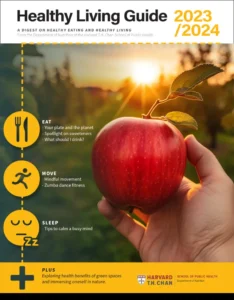In our fast-paced world, where convenience often takes precedence over nutrition, maintaining a healthy diet can be a challenge. However, understanding the importance of food diet health is crucial for overall well-being. Your food choices not only impact your physical health but also influence your mental and emotional well-being. Let’s delve into the key aspects of nutritious living and how you can achieve it. Read more

1. Balanced Nutrition: The Foundation of Health
A balanced diet is the cornerstone of good health. It involves consuming a variety of foods from different food groups to ensure you get all the essential nutrients your body needs. These nutrients include carbohydrates, proteins, fats, vitamins, minerals, and water. Each nutrient plays a vital role in maintaining various bodily functions, from providing energy to supporting immune function and promoting healthy skin.
2. Importance of Whole Foods
Whole foods are foods that are minimally processed and close to their natural state. They are rich in nutrients and free from additives, preservatives, and artificial ingredients. Incorporating whole foods such as fruits, vegetables, whole grains, lean proteins, and healthy fats into your diet can significantly improve your overall health. These foods are typically high in fiber, vitamins, and minerals while being low in unhealthy fats, sugars, and sodium.
3. Mindful Eating: The Art of Listening to Your Body
Mindful eating is about being present and attentive while eating. It involves paying attention to hunger and fullness cues, savoring the flavors and textures of food, and eating with awareness rather than mindlessly. By practicing mindful eating, you can develop a healthier relationship with food, prevent overeating, and better appreciate the nourishment that food provides.
4. Hydration: The Power of Water
Water is essential for life and plays a vital role in maintaining optimal health. It helps regulate body temperature, flush out toxins, transport nutrients, and lubricate joints. Staying hydrated is key to overall well-being, so aim to drink plenty of water throughout the day. Herbal teas, infused water, and fresh fruit juices can also contribute to your fluid intake.
5. The Role of Supplements
While a balanced diet should ideally provide all the nutrients your body needs, certain circumstances may warrant the use of supplements. For example, individuals with specific dietary restrictions, such as vegans or those with food allergies, may need supplements to fill nutritional gaps. Additionally, certain vitamins and minerals, such as vitamin D and calcium, may be recommended for certain age groups or health conditions. However, it’s essential to consult with a healthcare professional before starting any supplement regimen.
6. Exercise and Nutrition: A Dynamic Duo
Exercise and nutrition go hand in hand when it comes to maintaining a healthy lifestyle. Regular physical activity not only helps burn calories and build strength but also improves mood, boosts energy levels, and enhances overall well-being. Pairing a balanced diet with a consistent exercise routine can lead to better health outcomes and a higher quality of life.
7. Mind-Body Connection: Managing Stress and Emotions
The connection between the mind and body is profound, especially concerning food and health. Stress, anxiety, and emotional eating can all impact food choices and digestion. Practicing stress management techniques such as meditation, yoga, deep breathing, and adequate sleep can help reduce stress levels and promote a healthier relationship with food.
8. Seeking Professional Guidance
If you’re unsure about how to start or maintain a healthy diet, consider seeking guidance from a registered dietitian or nutritionist. These professionals can assess your dietary needs, provide personalized meal plans, offer nutrition education, and support you in achieving your health goals.
In conclusion, food diet health is not just about what you eat but also how you approach food and nourish your body. By prioritizing balanced nutrition, whole foods, mindful eating, hydration, supplements when necessary, regular exercise, stress management, and professional guidance, you can embark on a journey toward nutritious living and overall well-being



